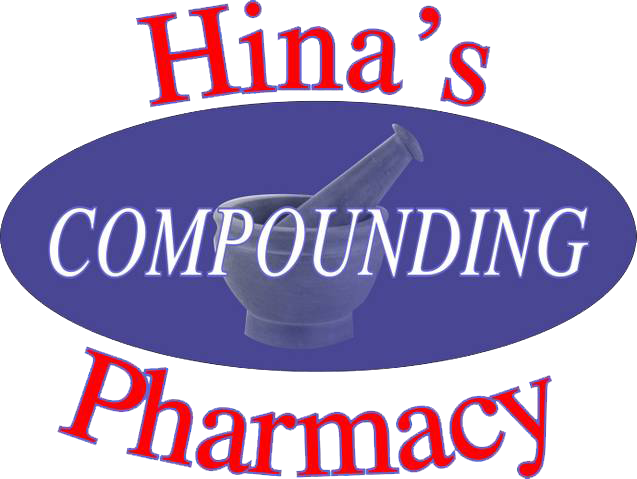Hormone Replacement

Restoring Hormonal Balance
Customized Hormone Replacement Therapy (HRT) is the replacement of deficient hormones with hormones that are chemically identical to those that the body naturally produces, but which have declined due to aging or illness.
Customized HRT has improved the quality of life for millions of women who suffer from hormonal imbalance. The ideal process for achieving hormonal balance includes an assessment of hormone levels and complete evaluation of signs and symptoms, followed by replacement of the deficient hormones in the most appropriate dose via the most effective route for each woman, and monitoring to fine tune the therapy.
Estrogen is prescribed to relieve menopausal symptoms and treat postmenopausal problems such as vaginal dryness and tissue breakdown, painful intercourse, and various urinary disorders. Estrogens have been shown to decrease the risks of osteoporosis and colorectal cancer.
Progesterone is commonly prescribed for perimenopausal women to counteract “estrogen dominance”, minimizes the risk of endometrial cancer in women who are receiving estrogen, and may enhance the beneficial effect of estrogen on lipid and cholesterol profiles.
Published research has shown that the risk of breast cancer is increased by long-term use of conjugated equine estrogens, which are the most commonly prescribed form of commercially available estrogen, and the risk is further increased when the synthetic progestin medroxyprogesterone acetate is added .4, 5 Conjugated estrogens are derived from pregnant mares’ urine, but most estrogens from horses are NOT naturally produced by humans. Additionally, synthetic medroxyprogesterone acetate does not confer all of the benefits of natural progesterone. That is why we recommend the use of natural estrogen and progesterone.
Androgens are a class of hormones that include DHEA and testosterone, which are normally produced in a young healthy woman, and are important for libido as well as integrity of skin, bone, and muscle. When women enter menopause, testosterone and DHEA levels may decline. Experts now recognize the importance of supplementing androgens for women who are deficient.
While women have benefited from therapy with estrogens, progesterone, and androgens that are “chemically identical” to the hormones produced naturally by the human body, researchers and health care professionals realize that this is just the “tip of the iceberg” when it comes to achieving hormonal balance. Thyroid and adrenal function, as well as nutritional status, should also be evaluated and treated when indicated.

Women Prefer Natural Hormones
Mayo Clinic researchers surveyed 176 women taking natural micronized progesterone who had previously taken a synthetic progestin (medroxyprogesterone acetate, or MPA) to see if progesterone improved the women’s overall quality of life, menopausal symptoms, and satisfaction with HRT. After one to six months, the women reported an overall 34% increase in satisfaction on micronized progesterone compared to their previous HRT, reporting these improvements: 50% in hot flashes, 42% in depression, and 47% in anxiety. Micronized progesterone was also more effective in controlling breakthrough bleeding. In other studies, women using micronized progesterone had specific improvements in the areas of cognition, sleep, and menstrual problems.

Thyroid Imbalance - Thyroid Hormone Therapy
Thyroid Hormone helps the body convert food into energy and heat, regulates body temperature, and impacts many hormonal systems in the body. Thyroid hormone exists in two major forms: Thyroxine (T4), an inactive form that is produced by the thyroid gland and converted to T3 in other areas of the body, and Triiodothyronine (T3), the active form. The role of thyroid hormone and consideration of its impact on multiple body systems is emerging as a critical component of balanced hormone replacement for men and women.
Symptoms of hypothyroidism (low levels of thyroid hormone) include fatigue, cold and heat intolerance, hypotension, fluid retention, dry skin and/or hair, constipation, headaches, low sexual desire, infertility, irregular menstrual periods, aching muscles and joints, depression, anxiety, slowed metabolism and decreased heart rate, memory impairment, enlarged tongue, deep voice, swollen neck, PMS, weight gain, hypoglycemia, and high cholesterol and triglycerides. Yet, more than half of all people with thyroid disease are unaware of their condition.
Although both T4 (thyroxine, an inactive form that is converted to T3 in other areas of the body) and T3 (triiodothyronine, the active form) are secreted by the normal thyroid gland, many hypothyroid patients are treated only with levothyroxine (synthetic T4). For example, T4 preparations are often ineffective for patients with Chronic Fatigue and Immuno-Deficiency Syndrome (CFIDS) and Fibromyalgia (FM). The combination of pituitary dysfunction, high reverse T3, and thyroid resistance, leads to inadequate thyroid effect in most, if not all CFIDS/FM patients.
A T4/T3 combination preparation or straight T3 (triiodothyronine) may be preferable to T4 alone. However, the only commercially available form of T3 is synthetic liothyronine sodium (Cytomel®) in an immediate release formulation which is rapidly absorbed, and may result in higher than normal T3 concentrations throughout the body causing serious side effects. Research indicates there is a need for sustained-release T3 preparations in order to avoid adverse effects. Ultimately, it is the expertise of the prescriber, use and interpretation of appropriate tests, dosing of the T3 or T4/T3 combinations, and the formulation of the medications that determines the success of treatment.
N Engl J Med 1999 Feb 11;340(6):424-9
Effects of thyroxine as compared with thyroxine plus triiodothyronine in patients with hypothyroidism.
A randomized, double-blind, crossover study found inclusion of T3 in thyroid hormone replacement improved cognitive performance, mood, physical status, and neuropsychological function in hypothyroid patients. Two-thirds of patients preferred T4 plus T3, and tended to be less depressed than after treatment with T4 alone. Patients and their physicians may wish to consider the use of sustained-release T3 in the treatment of hypothyroidism, particularly when the response to levothyroxine (T4) has not been complete.
J Endocrinol Invest 2002 Feb;25(2):106-9
Levothyroxine therapy and serum free thyroxine and free triiodothyronine concentrations.
John M. Lee, M.D., an Australian physician, points out that any thyroid function problem should be examined in the larger context of adrenal fatigue, hormone imbalances such as estrogen dominance, nutritional deficiencies, liver dysfunction, and digestion and absorption problems. Many vitamins, minerals and amino acids are needed to convert T4 to T3, and to get T3 into the cells. Dr. Lee believes that conservatively, 40% of women in the U.S. have measurably low thyroid and as a result are suffering from fatigue, depression, cold hands and feet, dry skin and hair and many other symptoms associated with hypothyroidism (low thyroid). Dr. Lee has a unique approach to treating patients with low thyroid function and advocates using only T3 for thyroid hormone replacement, and because the use of commercially-available T3 (liothyronine) is associated with serious problems such as rapid heart rate, Dr. Lee uses a slow-release T3 and reports the therapy is successful.
